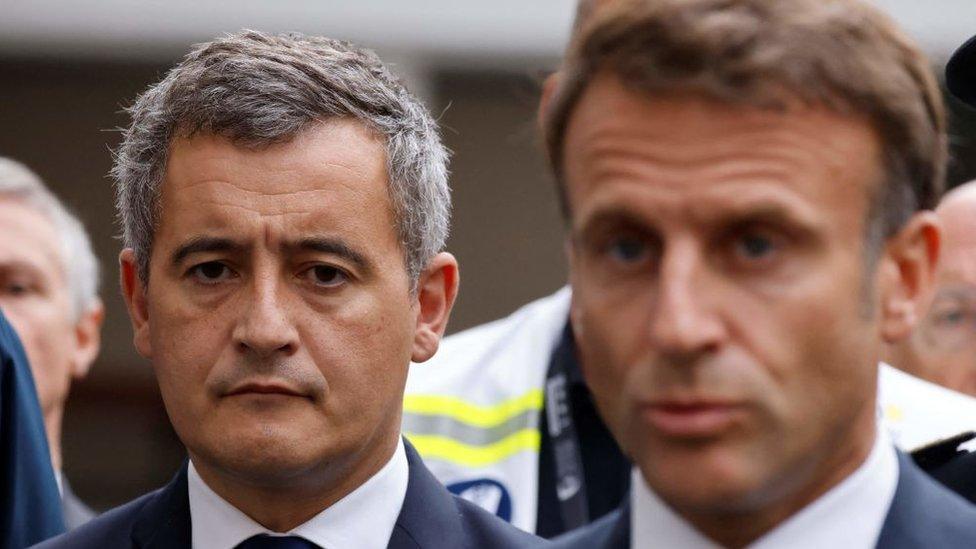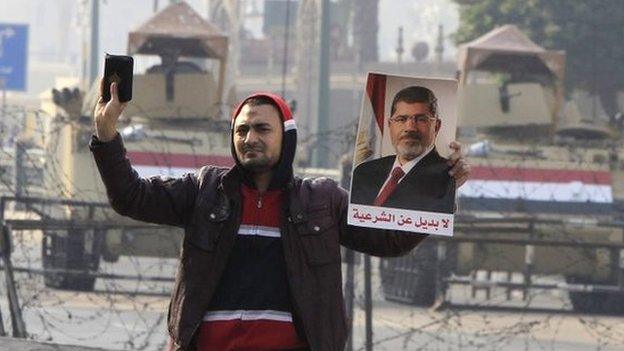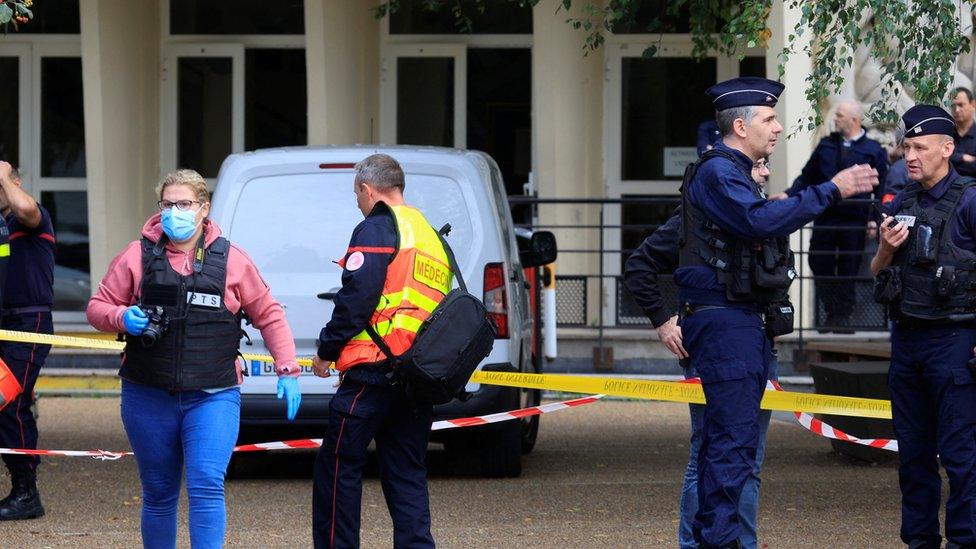French minister Darmanin spars with footballer Karim Benzema in Gaza row
- Published

The former French international is threatening to sue Gérald Darmanin, who accused him of Islamist links
French football's "bad boy" Karim Benzema is threatening to go to court after Interior Minister Gérald Darmanin accused him of having links with the Muslim Brotherhood.
The minister was reacting to remarks made by Benzema on X, formerly Twitter, in which he offered prayers to the people of Gaza as "victims again of unjust bombardments which spare neither women nor children".
Noting his failure to express similar sympathy for the estimated 1,400 Israeli victims of Hamas, Mr Darmanin said the former French striker was "well-known for his links with the Muslim Brotherhood".
"We are fighting the hydra that is the Muslim Brotherhood, because it creates an atmosphere of jihadism," he told right-wing news channel CNews.
The footballer, who now lives in Saudi Arabia and plays in the Saudi Pro League, authorised his Paris lawyer to issue a categorical denial - and to threaten legal action against Mr Darmanin for slander.
"Karim Benzema has never had the least relationship with this organisation," said Hugues Vigier.
"Praying for a civilian population living under bombs… is neither propaganda for Hamas, nor complicity in terrorism, nor an act of collaboration.
"It is natural compassion in the face of what many people qualify as war crimes… but which in no way detracts from the horror of the [Hamas] terrorist actions carried out on October 7," he said.
He said Karim Benzema was also considering legal action against right-wing deputy Nadine Morano, who described him as an "element of propaganda for Hamas".
Speaking subsequently on BFMTV, the interior minister refused to back down - saying he would only withdraw his comments if the footballer issued another tweet lamenting last Friday's Islamist murder of a schoolteacher in Arras.
"The [Muslim] Brotherhood is insidious. It uses all the means available in our society to get across its message of a strict Islam…. Not to see this is to be naive. Let's stop being naive!"

Gérald Darmanin (L) joined President Emmanuel Macron in Arras after a teacher was fatally stabbed at a high school
The Muslim Brotherhood is the 80-year-old movement, founded in Egypt, which has provided the rationale for many modern-day Islamist organisations, including Hamas.
Banned in Saudi Arabia, Egypt and many other Middle Eastern countries, it suffers no restriction in most of the EU, which does not regard it as terrorist.
Primarily an ideological movement, with no formal structure, its influence in Europe is mainly seen via front organisations which campaign for Islamic causes like the right of women to wear head-coverings.
Mr Darmanin's attack on Karim Benzema came under immediate fire from the political left, which accused the minister of trying to make political hay.
The 35-year-old former Real Madrid star has a difficult relationship with the French public. Though idolised by some, he has also won a reputation as a troublemaker.
In 2021 he was given a year's suspended prison sentence after being convicted of complicity to commit blackmail over a sex-video featuring French team-mate Mathieu Valbuena.
"Darmanin is campaigning for 2027," said political commentator Philippe Moreau Chevrolet, pointing to the next presidential election.
"He's looking for the most effective way to send out a message to right-wing voters."
The minister's entourage conceded there was "no judicial basis for proceeding against Benzema".
However in off-the-record briefings to the French press they said the footballer has "displayed a steady move towards a strict Islam characteristic of Brotherhood ideology". They cited his refusal to sing the national anthem during appearances for France, and his "proselytism" on social media.
Renowned lawyer Emmanuel Daoud told Le Figaro newspaper of his shock at Mr Darmanin's intervention.
"Is it tolerable for a man who [as interior minister] is also minister of religion to say that expressing any spiritual compassion with the people of Gaza makes someone necessarily guilty of being close to the Muslim Brotherhood and Hamas?"
"We are very far from our basic laws."
Related topics
- Published20 October 2023

- Published13 April 2015

- Attribution
- Published4 June 2023

- Published14 October 2023
